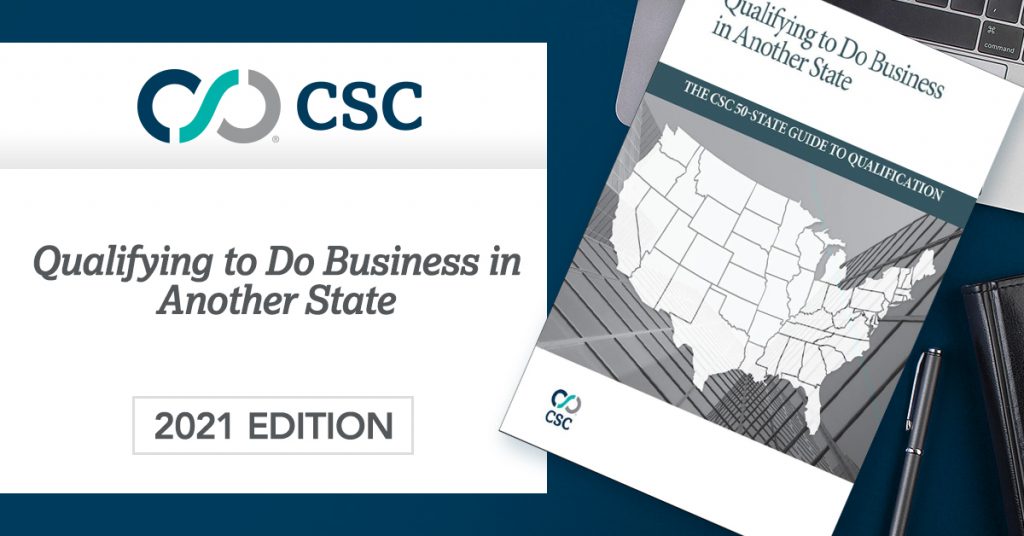
If you plan to do business outside the jurisdiction where your entity is formed, you may need to qualify there as a “foreign” corporation. Most states have laws that require entities to qualify to legally conduct business in their state.
This typically involves obtaining a certificate of authority from the state (or states) where you plan to do business. You may also be required to maintain a registered office and registered agent, and to comply with reporting requirements and tax filings.
While not all corporate activities require companies to qualify in states outside their state of formation, any activities conducted in a foreign state deemed sufficiently “regular, systematic, extensive, and continuous” can trigger the qualification requirement.
The analysis as to whether an entity is “doing business” is fact-dependent. Many corporate activities fall into the grey area between those that statutorily require qualification and those that don’t, and courts from different states may have vastly different definitions of what doing business is. Thus, the question of whether a corporation is doing business for qualification purposes is determined on a case-by-case and state-by-state basis, which can be a complex and time-consuming task. However, it must be done to avoid the harsh consequences of making the wrong decision.
So, what’s at stake if you fail to qualify? In a recent CSC webinar on qualification, Dykema attorneys Beth Lyden and Zack Beaver provided insight on a range of consequences:
- Hefty monetary penalties. The presenters note that states are “highly motivated” to impose significant fines on companies that fail to qualify when required, in order to discourage unfair competition with domestic companies, protect that state’s citizens, and to collect filing and tax revenues from the foreign companies. The revenue stream from compliant foreign companies is an added incentive.
- No access to the state’s courts. A state can prevent you from bringing a lawsuit or initiating proceedings unless and/or until you qualify to do business there. “States close the courts to non-complying foreign companies on the premise that you shouldn’t benefit from that court system when you’re violating state law,” Lyden explains. “It’s about paying your fair share.”
- Personal liability. While limitation of liability isn’t typically waived for shareholders or directors of a noncompliant foreign company, a few states do impose fines on individuals who act on behalf of unqualified companies. “In some cases, these can actually be criminal offenses,” Lyden cautions.
- Enforceability of contracts. If your entity isn’t qualified and you’re denied access to the state court, you may not be able to enforce a contract, especially if the other party doesn’t do business elsewhere. And while failure to qualify can be cured, you’re likely to end up paying increased litigation costs, in addition to penalties, back taxes, and interest. There’s also a risk that corporate actions could be invalidated, and that your company could be denied needed business licenses if it’s not qualified.
Moreover, loans, M&As, and other corporate transaction documents typically include language requiring a company to be in good standing, Zack Beaver notes. “If you fall out of good favor with the state, that may trigger a default under loans, under your commercial contracts, under all kinds of other agreements you may not even think of,” he explains, which could result in unexpected liability and even voided contracts.
A valued qualification resource for all 50 states
CSC’s Qualifying to Do Business in Another State: The CSC 50-State Guide to Qualification is a comprehensive toolbox to help you better understand foreign qualification and avoid such consequences of failing to qualify. Using case illustrations, the book provides insight and analysis of the types of activities that do and do not trigger and do not trigger the qualification requirement.
The book explores the Model Business Corporation Act (MBCA), which serves as a template for most states’ laws governing foreign corporations’ business activities within their borders. It examines the activities listed in the MBCA that are not subject to regulation, and the activities that require a foreign corporation to register to business. There is also a discussion of how internet and e-commerce activity could trigger qualification requirements, and a look at the consequences of doing business without qualifying.
Step-by-step instructions are provided for qualifying to do business in foreign states, as well as registration procedures for charitable organizations.
The book also includes a comprehensive scope of annotated qualification statutes for all jurisdictions, giving legal practitioners easy access to the current statutes and relevant case notes that relate to doing business in a foreign state.
Two easy-to-use charts summarize the activities that do not constitute doing business and the consequences of failing to qualify. Both charts include comments and citations. The appendix contains a list of qualification forms for all 50 states and the District of Columbia, with forms on the companion CD-ROM. The charts have been updated for the 2021 edition, and the latest changes to qualification statutes for all 50 states and the District of Columbia have also been captured in the book’s statutory section.
The 2021 Edition of Qualifying to do Business in Another State is available as a softbound book or as an ebook, compatible with dedicated e-reader devices, computers, tablets and smartphones that use e-reader software or applications. It is also available on the LexisNexis Digital Library.
Exercise your options with CSC® publishing
Autoship: Make sure you’re working with the most current information. Sign up for autoship and receive new editions as soon as they are released, without having to go through the order process all over again.
BULK SAVINGS: Discounts on volume orders can save your firm money.
To learn more about autoship and bulk purchase options, call 1.800.533.1637.
To learn more about the 2021 Edition of Qualifying to do Business in Another State, call 1.800.533.1637 or visit us online at www.lexisnexis.com/csc.